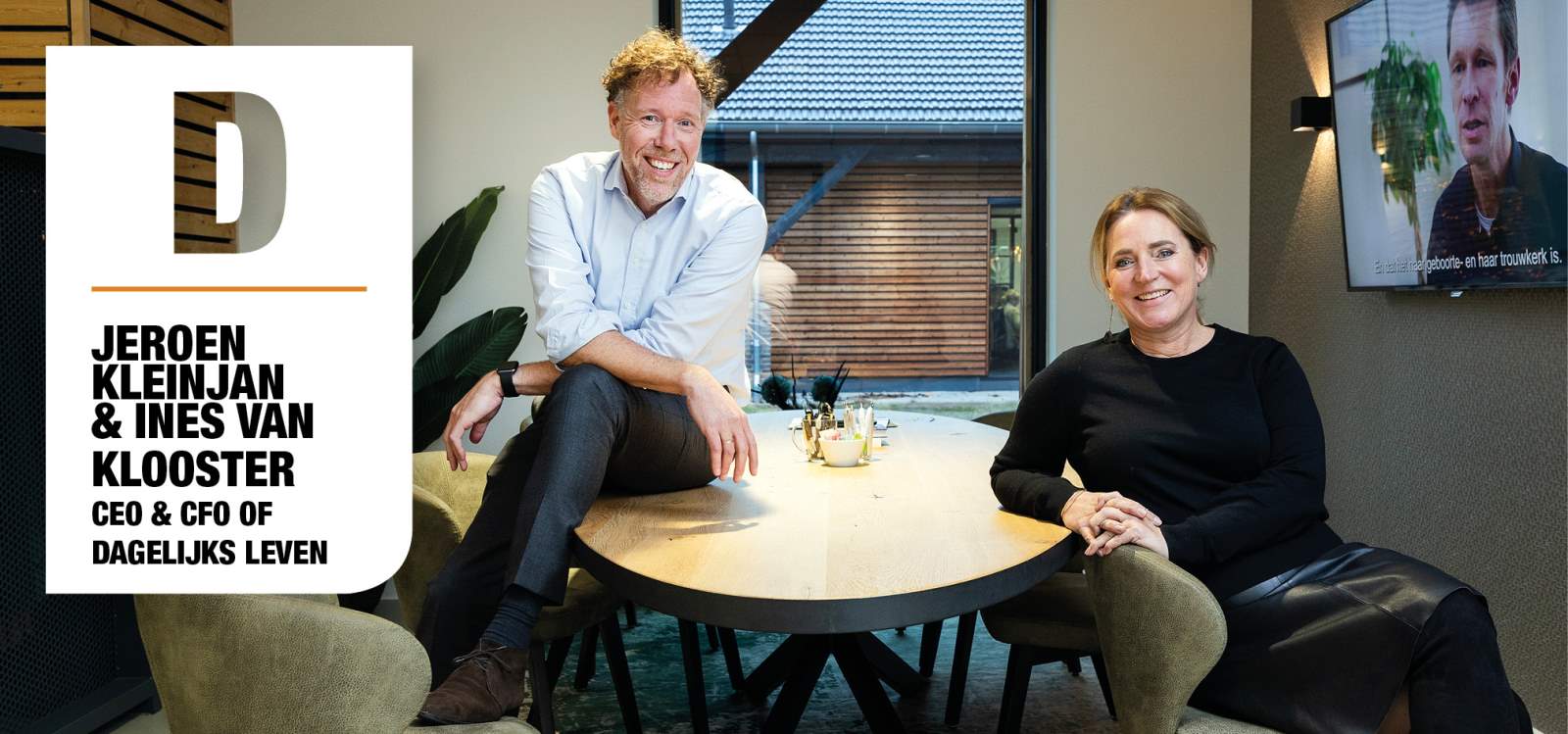De pagina ververst bij het selecteren van een onderwerp.
Sla artikel navigatie over."The small scale ensures that personalized care is possible, and that we truly see our residents."
CEO Jeroen Kleinjan and CFO Ines van Klooster are at the heart of the community with the small-scale residential care of Dagelijks Leven, providing people with dementia a place where they can be themselves.
"In essence, the care concept of Dagelijks Leven revolves entirely around the resident and what he or she still wants," explains Jeroen. "We try to follow the resident's rhythm as closely as possible. For example, we don't dictate when residents should wake up or go to bed, and we ensure that they can do the things they enjoy. We've noticed that many residents enjoy helping with meal preparation, setting the table, or working in the garden. So why not let them do that? We encourage relatives to visit as often as they used to. We're not a nursing home, we have no visiting hours: the door is open. This makes residents feel at home. And that's also our motto: Just like home." Dagelijks Leven provides small-scale living space for a maximum of 22 residents with a form of dementia. They have their own studio, and there are also two large living rooms, an activity room, and a garden. The residences of Dagelijks Leven are deliberately located in lively places in residential areas. Jeroen: "There's plenty of activity around our residential complexes. Facilities, such as the supermarket, bakery, or hairdresser, are nearby. This makes it easier for our residents to participate in society and engage in the things they still want and can do independently." Ines adds, "Dagelijks Leven is also accessible to everyone, including those with a limited budget. That's very important to us."
Personal approach
Meanwhile, Dagelijks Leven has more than ninety locations, across the Netherlands. Last year, nine new residential care properties opened their doors. On Zorgkaart Nederland (Care Map Netherlands), Dagelijks Leven has been consistently rated with a score of 9 or higher for many years. "Of course we’re very proud of that," acknowledges Jeroen. "Feedback from our own satisfaction surveys also indicates that residents, as well as their relatives, appreciate our personal approach. Family members truly feel that their father or mother is in trusted hands." Ines admits that maintaining the care at such a high level is quite a challenge and emphasizes the importance of good collaborative partners. Last year, the Amvest Living & Care Fund reached an agreement to purchase 22 Dagelijks Leven residential care properties, ultimately providing a comfortable home for 480 residents. Eight of them were completed last year, and the remaining locations will be realized in 2024 and 2025. "We want to be the best and remain the best in caring for our residents, and having a good and reliable real estate partner is crucial. In our collaboration with Amvest, we know what to expect from each other. That brings peace and confidence, allowing us to focus on care."
More to achieve
As attention increasingly turns towards sustainability and social impact, Dagelijks Leven also sees the benefits of working with collaborative partners like the Amvest Living & Care Fund. "In terms of sustainability, real estate is essential," says Jeroen. "We take the responsibility together to contribute to livability, and we see that reflected in our buildings, such as solar panels and heat pumps. Additionally, we assess what can be improved in daily operations, for example, in the procurement process and in terms of waste." Making a social impact is inherently what Dagelijks Leven is about, emphasizes Jeroen: "We closely monitor the development of people with dementia and see the numbers rising. But there's much more ahead, and there's still a world to win. We have the ambition for Daily Life to stand even more firmly in a community, but also to activate the surrounding area. We learn a lot from the two thousand elderly people currently living with Daily Life. We don't want to treat people with dementia as patients but explicitly provide a home where they can largely retain control over their lives."
